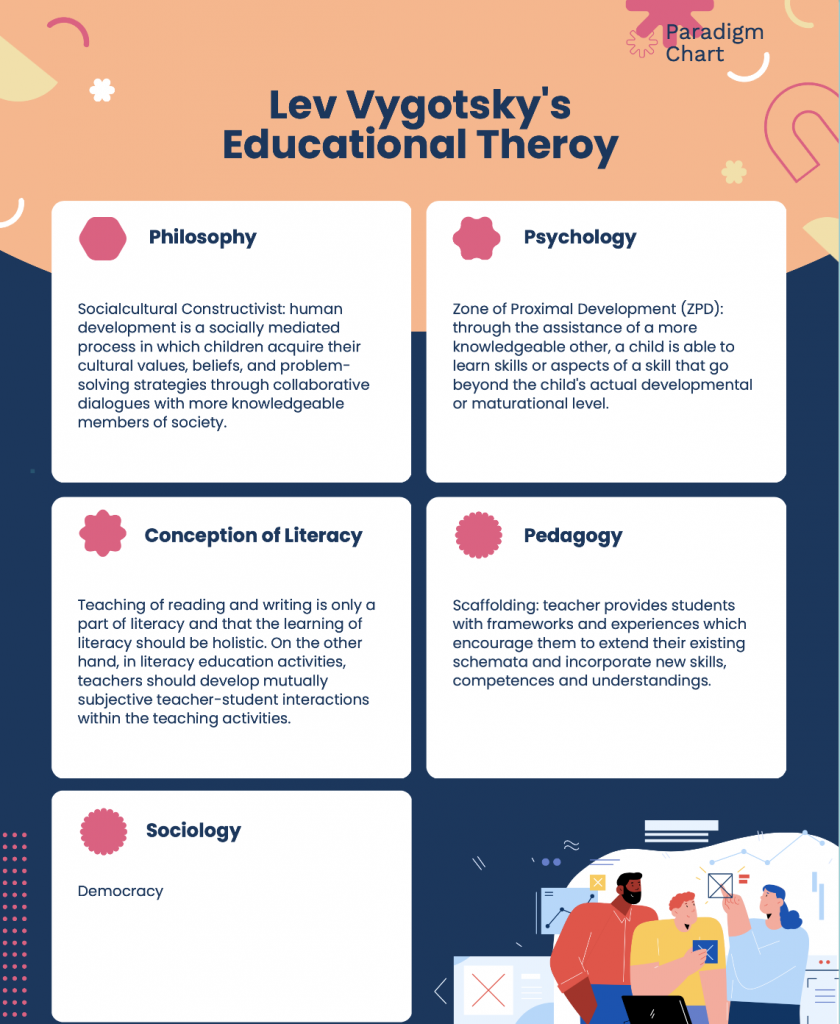Lev Vygotsky’s Paradigm Chart


(Used de Castell & Luke’s (1986) paradigm chart as a model; rephrased Mcleod’s (2022) article filling in this chart)
Lev Vygotsky was a Soviet developmental psychologist in the early 20th century. Inspired by Piaget, Vygotsky developed a more sophisticated system of cognitive development in children, today known as sociocultural theory. Unfortunately, his work remained neglected and unknown to the general public in the Soviet Union while he was alive. It was only after the unsealing of Soviet documents in the 1980s that his theories became widely known in the West and were quickly translated into various languages; his students also took the opportunity to lecture and promote his ideas in the United States.
In Vygotsky’s final lecture, compared to children’s psychological development, he emphasized the importance of early play: “In play, a child is always above his average age, above his daily behavior; in play, it is as though he were a head taller than himself “(Bodrova, 2015). Children focus on an imaginary situation with an external purpose and internal motivation during play. For example, when playing “family” games, they pretend to understand the roles and decide their actions based on those roles. Children need to determine their behavior according to the role of the game, leading to a significant degree of critical thinking and self-adjustment. During play, children focus on the process rather than the outcome of the task. This constructivist explanation of children’s cognitive development reminds me of role-playing games and game-based learning. Also, Vygotsky’s sociocultural theory provides a solid theoretical framework for collaborative learning tools such as synchronizing platforms(google sites, slides, docs etc.) and online conference applications.
If I could add one more column to de Castell & Luke’s (1986) chart after the “technocratic” paradigm, I would add social constructivism. Educational theorists have promoted social constructivism since the 1980s, and it has already inspired many learners, teachers and educational developers. The Indigenous paradigm is also part of social constructivism since it focuses on social and cultural factors, personal experiences and feelings.
References:
Bodrova, E. (2015). Vygotskian and Post-Vygotskian Views on Children’s Play. https://files.eric.ed.gov/fulltext/EJ1070266.pdf
de Castell, S and Luke A: (1986) Defining Literacy in North American Schools: Socio-Historical Conditions and Consequences in de Castell, Luke and Egan (eds) Literacy, Society and Schooling. Cambridge University Press.
Watters, A.: (2021) Teaching Machines: The History of Personalized Learning. MIT Press. Chapter 1, chapter 11, and conclusion.